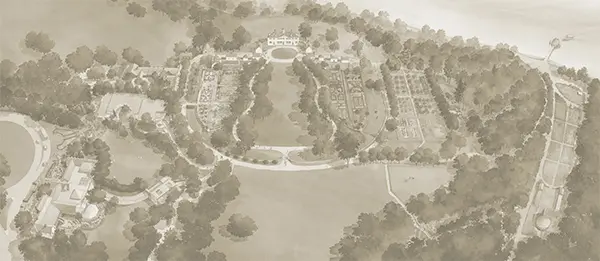A woody, twining vine, honeysuckle needs some structure to support itself. It blooms nearly all summer and is attractive to hummingbirds and other pollinators. It is well-suited for arbors, pergolas, and fences.
Latin Name
Lonicera sempervirens
Family
Caprifoliaceae
Also Known As
Trumpet Honeysuckle Coral Honeysuckle
Type of Plant
Bloom Season
May - November
Seasons
Specifications
Uses
Sunlight Exposure
Tolerances
Attracted Wildlife
Toxicity
Colors
Native Range
Southeastern United States
History
George Washington wrote in his diary in March of 1785, "Planted the Scarlet or French honey suckle (as my Gardner calls it, & which he says blows all the Summer) at each Column of my covered waysas also against the circular walls between the Store house &ca. and the two new necessaries."
Other Details
Planted at Mount Vernon


Hardiness Zones














Average annual extreme minimum temperature 1976-2005













Bartlett Tree Expert Company has been working with Mount Vernon Estate since 2011 providing expert arboricultural care and GPS mapping for the estate’s historic trees, as well as support from their research facility. Mount Vernon is proud to partner with Bartlett Tree Experts and appreciates their sponsorship of George Washington’s Mount Vernon Plant Finder App.
Bring Washington's Garden Home
Purchase our historic seeds, collected from plants grown at Mount Vernon and plant them in your own garden.
Shop Now
